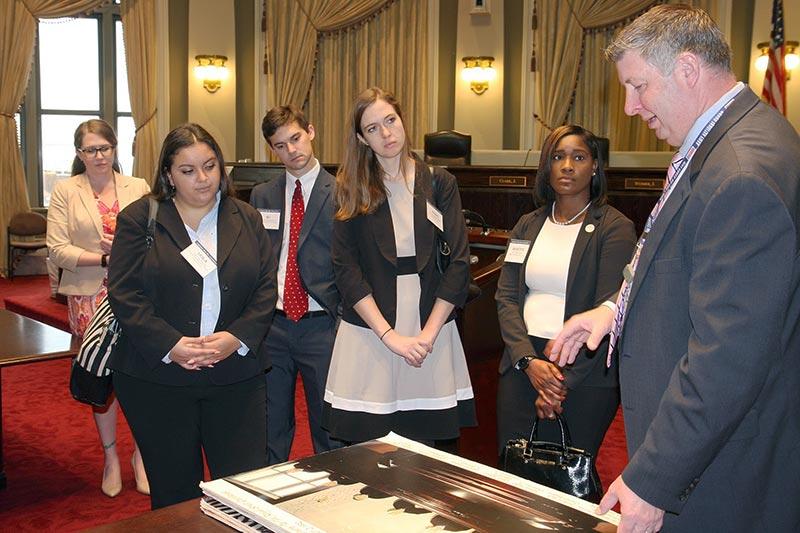Law students groomed for leadership in 'Access to Justice'
Anais Moore-Jaccard never intended to go to law school. But the Bard College graduate had a change of heart after spending five years in restaurant management in New York City.
That, coupled with some undergraduate courses she had taken in environmental and urban studies, opened her eyes to problems associated with food justice and social justice in general.
Now a rising second-year student at Tulane Law School, Moore-Jaccard recently completed the internship of her dreams – the Access to Justice Developing Leader Intern Program, a new initiative sponsored by the Louisiana State Bar Association and four New Orleans law firms.
Four students – one from each law school in Louisiana – were selected for the program, which through a focus on the civil legal needs of low-income individuals aims to develop the next generation of “access to justice” leaders.
For six weeks, the interns rotated through four different legal service providers, three judges, one policy organization and their sponsoring law firm. Moore-Jaccard's sponsoring firm was Phelps Dunbar whose program is spearheaded by 1999 Tulane Law graduate Chris Ralston.
“The goal was to understand the challenging issues facing Louisiana’s poor communities regarding access to legal assistance,” said Moore-Jaccard, a native of Los Angeles. “Louisiana is one of three states that doesn't provide any money for civil legal aid, so you can imagine what a dire situation it is for someone who needs legal assistance.”
Her most memorable experiences included working with the immigration department of Catholic Charities, learning about the plight of self-represented litigants through Judge Bernadette D’Souza and discovering the important role that law firms play in access to justice issues.
Tulane Law School professor of practice Laila Hlass, director of Experiential Learning and professor Stacy Seicshnaydre, associate dean of Experiential Learning and Public Interest Programs, said they were pleased the program made such an impact.
“This unique opportunity provided a rare opportunity in legal education,” Hlass said, “leadership training for those committed to addressing the access to justice crisis.”

